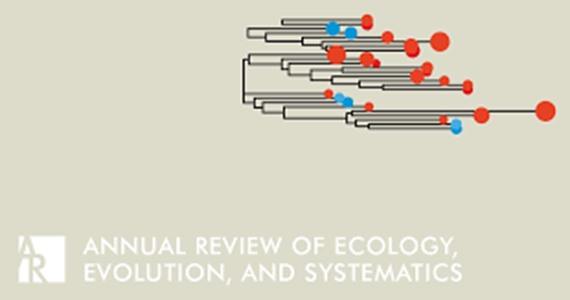Demographic Consequences of Phenological Shifts in Response to Climate Change
IF 11.2
1区 生物学
Q1 ECOLOGY
Annual Review of Ecology, Evolution, and Systematics
Pub Date : 2021-08-20
DOI:10.1146/annurev-ecolsys-011921-032939
引用次数: 51
Abstract
When a phenological shift affects a demographic vital rate such as survival or reproduction, the altered vital rate may or may not have population-level consequences. We review the evidence that climate change affects populations by shifting species’ phenologies, emphasizing the importance of demographic life-history theory. We find many examples of phenological shifts having both positive and negative consequences for vital rates. Yet, few studies link phenological shifts to changes in vital rates known to drive population dynamics, especially in plants. When this link is made, results are largely consistent with life-history theory: Phenological shifts have population-level consequences when they affect survival in longer-lived organisms and reproduction in shorter-lived organisms. However, there are just as many cases in which demographic mechanisms buffer population growth from phenologically induced changes in vital rates. We provide recommendations for future research aiming to understand the complex relationships among climate, phenology, and demography, which will help to elucidate the extent to which phenological shifts actually alter population persistence. Expected final online publication date for the Annual Review of Ecology, Evolution, and Systematics, Volume 52 is November 2021. Please see http://www.annualreviews.org/page/journal/pubdates for revised estimates.气候变化对物候变化的人口影响
当物候变化影响人口的生命率,如生存或繁殖时,生命率的改变可能会也可能不会产生人口水平的后果。我们回顾了气候变化通过改变物种物候来影响种群的证据,强调了人口生活史理论的重要性。我们发现物候变化的许多例子对生命率有积极和消极的影响。然而,很少有研究将物候变化与已知的驱动种群动态的生命速率变化联系起来,特别是在植物中。当这种联系被建立时,结果在很大程度上与生活史理论一致:物候变化在影响寿命较长的生物体的生存和寿命较短的生物体的繁殖时,具有种群水平的后果。然而,在同样多的情况下,人口机制使人口增长不受物候引起的生命率变化的影响。我们为未来的研究提供了建议,旨在了解气候、物候和人口统计学之间的复杂关系,这将有助于阐明物候变化在多大程度上改变种群持久性。预计《生态、进化和分类学年度评论》第52卷的最终在线出版日期为2021年11月。修订后的估计数请参阅http://www.annualreviews.org/page/journal/pubdates。
本文章由计算机程序翻译,如有差异,请以英文原文为准。
求助全文
约1分钟内获得全文
求助全文
来源期刊
CiteScore
19.90
自引率
1.70%
发文量
21
期刊介绍:
The Annual Review of Ecology, Evolution, and Systematics is a scholarly publication that has been in circulation since 1970. It focuses on important advancements in the areas of ecology, evolutionary biology, and systematics, with relevance to all forms of life on Earth. The journal features essay reviews that encompass various topics such as phylogeny, speciation, molecular evolution, behavior, evolutionary physiology, population dynamics, ecosystem processes, and applications in invasion biology, conservation, and environmental management. Recently, the current volume of the journal transitioned from a subscription-based model to open access through the Annual Reviews' Subscribe to Open program. Consequently, all articles published in the current volume are now available under a CC BY license.

 求助内容:
求助内容: 应助结果提醒方式:
应助结果提醒方式:


